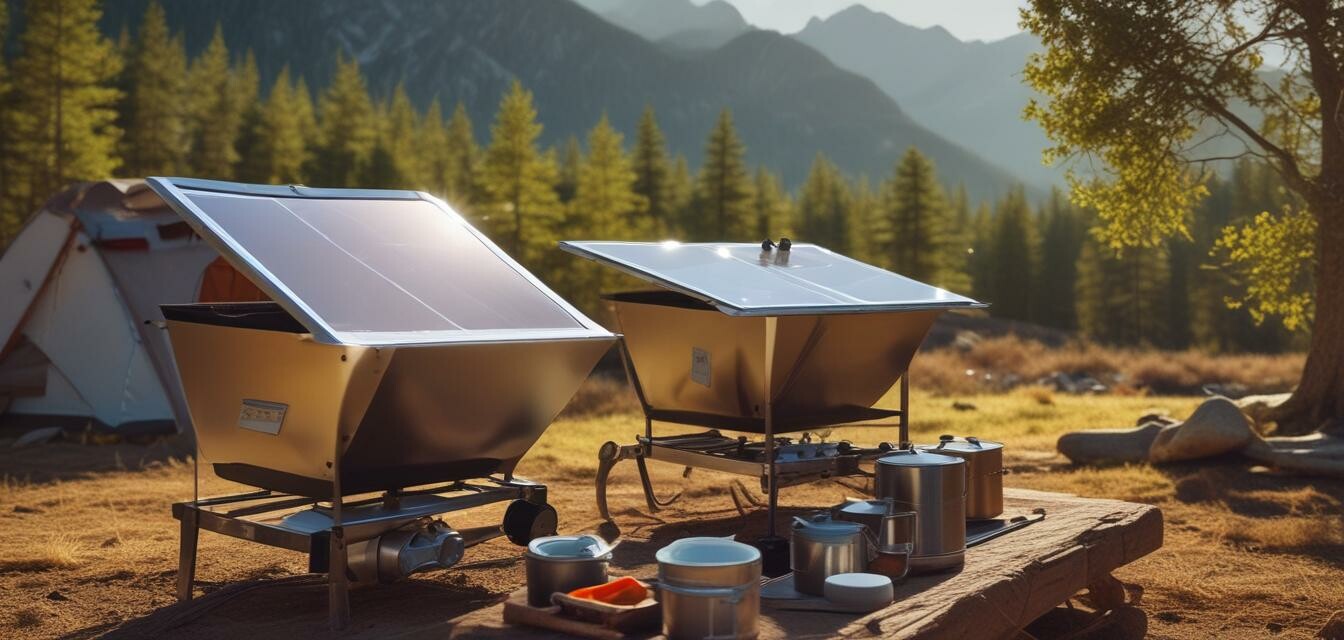
Maximizing Solar Cooking Efficiency While Camping
- Choose the right solar cooker for your camping needs.
- Position your solar cooker to capture optimal sunlight.
- Plan your meals ahead to use the sun's energy efficiently.
- Monitor the cooking progress frequently.
- Enjoy eco-friendly cooking without the need for fuel.
Are you ready to elevate your camping experience with solar cooking? Using solar cookers while camping not only makes meal preparation efficient, but it also aligns with sustainable practices. In this article, we will share expert tips on how to maximize your solar cooking efficiency while enjoying the great outdoors.
Understanding Solar Cookers
Solar cookers harness the sun's energy to cook meals, providing an eco-friendly solution while camping. There are several types of solar cookers, including:
- Box cookers
- Parabolic cookers
- Panel cookers
Choosing the Right Solar Cooker
Selecting the right solar cooker for your camping excursions can significantly impact your cooking efficiency. Consider the following:
| Type | Best For | Advantages |
|---|---|---|
| Box Cooker | Cooking slow meals | Good heat retention |
| Parabolic Cooker | Quick meals and boiling | High temperatures |
| Panel Cooker | Lightweight and portable | Easy setup |
Understanding the strengths of each type will help you select the cooker that fits your needs best. For additional guidance, check out our buying guides for solar cookers and grills.
Setting Up Your Solar Cooker
Once you have your solar cooker, the next step is effective setup. Here are some key tips:
- Choose the Right Spot: Look for an area with maximum sunlight and minimal shade.
- Adjust the Angle: Position your cooker directly towards the sun. Adjust the angle as the sun moves throughout the day.
- Secure Your Cooker: Ensure your cooker is stable and won’t be knocked over by wind or movement.
Meal Planning for the Sun
Planning is crucial when utilizing solar energy for cooking. Here are some tips on how to make the most of your solar cooker:
Beginner's Tips
- Opt for dishes that require slower, longer cooking times, such as stews and casseroles.
- Pre-soak grains and beans to reduce cooking time.
- Prepare meals that can be cooked in one pot to save energy and time.
- Store ingredients in airtight containers to keep them fresh while camping.
Monitoring Your Cooking
Keep an eye on the cooking process to ensure your meal turns out just right. Here’s what to do:
- Check the cooking progress every 30 minutes.
- Rotate your cooker to maintain the best angle to the sun.
- Use a thermometer to check food temperatures if necessary.
Cleaning and Maintaining Your Solar Cooker
After enjoying your delicious meals, proper cleaning and maintenance will keep your solar cooker in good shape for future use:
- Clean the mirrors and cooking surface after each use with mild soap and water.
- Store the cooker in a cool, dry place to avoid damage.
- Regularly check for any damages or continued maintenance issues.
Advantages of Solar Cooking
Solar cooking comes with an array of benefits. Here are some notable ones:
Pros
- Eco-friendly cooking method
- Reduces reliance on fuel
- Provides a unique cooking experience while camping
Cons
- Dependent on sunny weather
- Cooking time can be longer than traditional methods
- Requires planning ahead for meal prep
Conclusion
Maximizing solar cooking efficiency while camping is not only practical but also a rewarding experience. By understanding your solar cooker, setting it up effectively, and planning your meals, you can enjoy tasty, eco-friendly dishes under the sun. For more insights and product recommendations, explore our categories on solar cookers and grills or check our portable solar panels for full solar energy use.
Happy Camping!